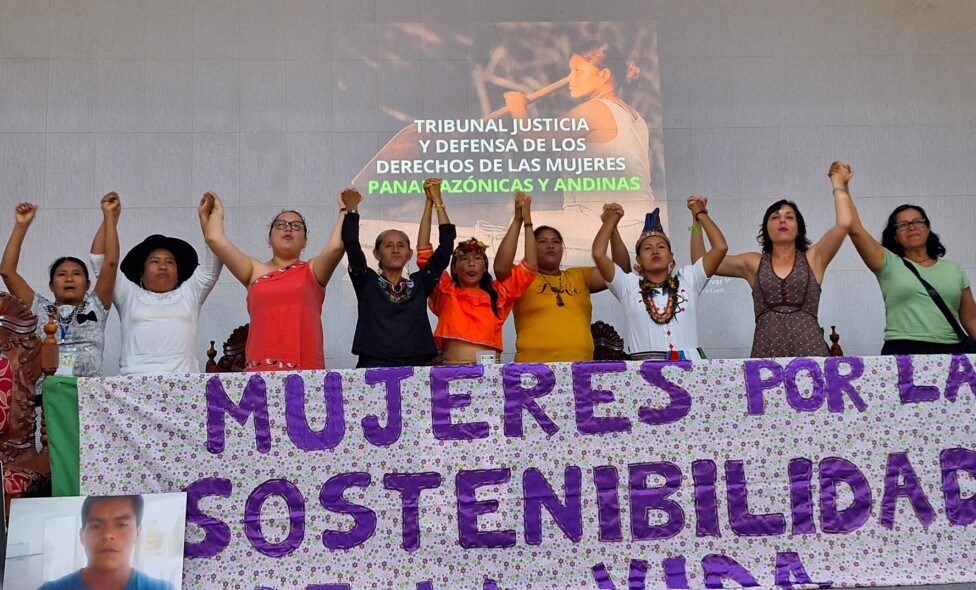
HAVANA TIMES – “I’ve come here to denounce that in my community we drink water with heavy metals and breath polluted air from the mining activity,” stated indigenous Quechua leader Elsa Mema, at a symbolic Tribunal held in the city of Tarapoto, capital of Peru’s San Martin department in the Peruvian Amazon region.
On April 26, this Ethical Tribunal in Defense of Women’s Bodies and Territories took place. At the open hearing, four cases were presented, involving Peruvian women from the Amazon and Andes regions – among them the area where Elsa Merma lives – who are suffering violations of their individual and collective rights.
The event shined a spotlight on the systematic way the Peruvian government’s actions and lack of actions impacts the well-being of the women, their families, and their peoples. It was part of a series of meetings called Pre Fospa, the national prelude to the Pan-Amazon Social Forum.
The eleventh international edition of the Fospa will take place in three Bolivian sites from June 12–15, with the presence of around a thousand delegates from participating organizations, representing the nine countries that share the 6.7 million kilometers of Amazon territory. During the Fospa, these groups will share and coordinate their efforts for the defense and protection of this vital territory. One part of this task involves integrating women’s rights into their struggles.
At the Fospa meeting, a group will deliver the Tarapoto letter, a declaration that came out of the three days of collective work and reflection on the part of over 50 indigenous organizations and agencies of civil society. The letter includes the conclusions of the Tribunal.
The Peruvian Tribunal presented their verdict on April 27th, leaving it clear that the government policies and activities of the large companies are impacting the life, health, food security and welfare of the women, as well as their ability to enjoy full human rights.
“The testimonies demonstrate one type of effect on their day-to-day lives, as the result of unilateral government decisions that don’t respect, protect, or guarantee the rights of the indigenous peoples,” the judges established.
The Tribunal was presided over by Amazonian indigenous leader Marisol Garcia, and composed of Mar Perez of the National Coordinator of Human Rights; Cristina Gavancho of the Legal Defense Institute; and Laly Pinedo, a feminist activist from the National Network for the Promotion of Women.

Expelled from their ancestral territory
Leona Pizango, a member of San Martin’s kitchwa peoples, denounced that she, her husband and her four children were all expelled from their chacra [small farm] in the community of Callanayaku by forest rangers from the Cordillera Azul National Park, an area comprising 5,225 square miles that was created in 2001 for the protection of its biodiversity.
The government measure failed to take into consideration the fact that the area includes the ancestral lands of the kitchwas, one of 51 officially recognized indigenous tribes of the Amazon. It also ignored their right to receive land titles for their communities, for their legal security and territorial governance.
“I used to raise pigs, chickens, ducks, and to grow yucca and plantains for our food; the park rangers chased us out, cut down all my plants, threw a


